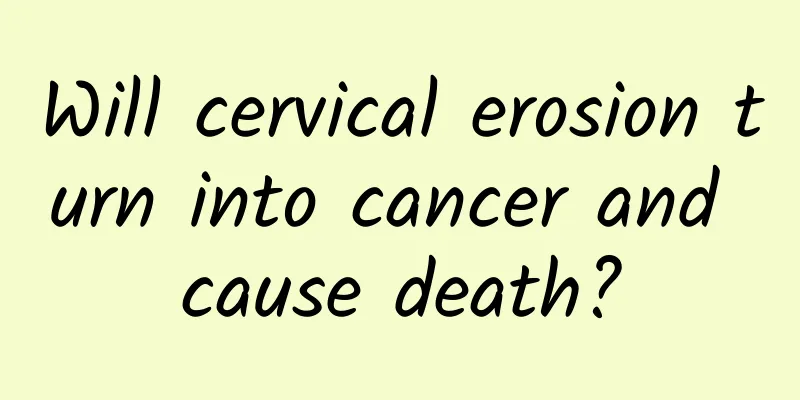Is it easy to cure a woman's miscarriage?

|
Many people ask if miscarriage is easy to cure. First of all, miscarriage can be cured. Secondly, there are many ways to treat miscarriage, so you can rest assured. However, miscarriage is very harmful to women, so before you decide to have a child, you must do a good job of contraception. Here are some common methods of treating miscarriage. 1. Threatened abortion Rest in bed, and avoid sexual intercourse. For patients with luteal insufficiency, progesterone can be used for treatment. During treatment, observe the patient's symptoms and test results, and perform ultrasound examinations to clarify the fetal development if necessary. Before preserving pregnancy, ectopic pregnancy should be ruled out first. 2. Inevitable miscarriage and incomplete miscarriage Once the diagnosis is confirmed, the embryo and placental tissue should be completely expelled as soon as possible. When an unavoidable miscarriage or incomplete miscarriage occurs in early pregnancy, vacuum aspiration should be performed in a timely manner. Carefully examine the aborted tissue and send it for pathological examination. In late miscarriage, uterine contractions need to be promoted. After the fetus and placenta are completely delivered, check whether the placenta and fetal membranes are complete. If necessary, curettage should be performed to remove the residual products of pregnancy in the uterine cavity. For those with excessive vaginal bleeding, complete laboratory tests, blood transfusion and infusion, anti-shock treatment when necessary, and antibiotics should be given to prevent infection for those with prolonged bleeding time. 3. Complete miscarriage If there are no signs of infection, generally no treatment is required and an ultrasound examination can be performed to determine whether there is any residue in the uterine cavity. 4. Missed abortion Artificial abortion is usually performed. If the embryo stops developing for a long time, the pregnancy tissue will be tightly adhered to the uterine wall, which may cause difficulty in surgery and may cause heavy bleeding due to abnormal coagulation function. Before treatment, blood routine, coagulation time, platelet count, etc. should be checked, and blood transfusion should be prepared. Abortion infection often occurs in incomplete abortion complicated by infection. The principle of treatment should be to actively control the infection. If vaginal bleeding is not severe, intravenous broad-spectrum antibiotics should be used, and thorough curettage should be performed after the infection is controlled. If septic shock has been combined, the shock should be actively corrected; if the infection is severe or an abscess is formed in the abdominal and pelvic cavity, surgical drainage should be performed and the uterus should be removed if necessary. |
<<: How harmful is artificial abortion?
>>: How is miscarriage diagnosed?
Recommend
What are the symptoms of ovarian cysts?
Qiandan: What are the symptoms of ovarian cysts? ...
Don’t underestimate the seated forward bend! Doing it right can stretch your legs and reduce swelling
While sitting on the floor, lean your upper body ...
Experts warn: Excessive dieting may cause menstrual irregularities
Dieting is a weight loss method chosen by many fe...
What are the factors that trigger menopause? Pay attention to these 4 situations
One of the factors that trigger menopause is gene...
What are the symptoms of pelvic peritonitis?
Pelvic peritonitis is one of the most common infl...
What are the obvious symptoms of cervical precancerous lesions?
What are the symptoms of cervical precancerous le...
Improve stress fertilizer! Pressing 2 acupoints to relieve stress and prevent overeating
Modern people live a fast-paced life and are unde...
What is the difference between premature ovarian failure and polycystic ovary
What is the difference between premature ovarian ...
How to treat moderate cervical erosion
Moderate cervical erosion can be improved through...
To prevent cervical erosion, timely and effective contraceptive measures should be taken
Cervical erosion is a common gynecological diseas...
Consequences of untreated bacterial vaginosis
Fungal vaginitis is not unfamiliar to everyone. D...
What is the cause of recurrent cervical erosion?
What is the reason for the recurrence of cervical...
What are the dietary taboos for patients with adnexitis?
As the saying goes, "food is the first neces...
What to eat for the staple food of diabetic uterine fibroids? Risks of surgery for diabetic uterine fibroids
What to eat for the staple food of diabetic uteri...
Must see! Winter weight loss must-eat food ranking
The following best winter weight loss foods are c...









